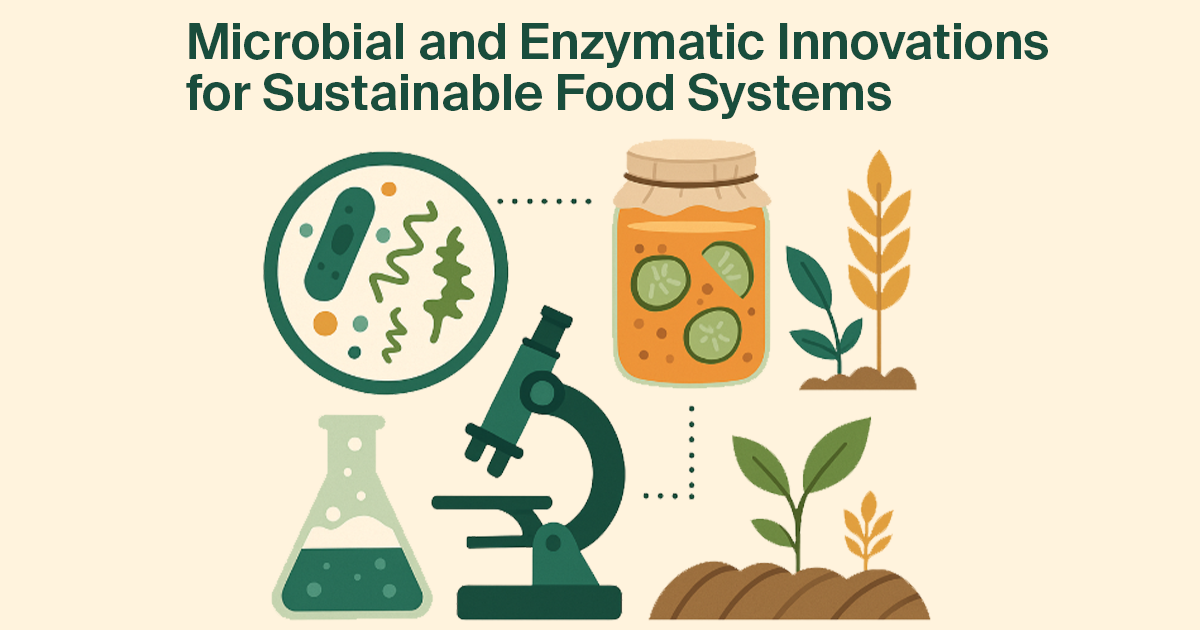- 5.1Impact Factor
- 8.7CiteScore
- 15 daysTime to First Decision
Advances in Food Biotechnology: Microbial and Enzymatic Innovations for Sustainable Food Systems
This special issue belongs to the section “Food Biotechnology“.
Special Issue Information
Dear Colleagues,
Food biotechnology encompasses the application of modern biotechnological tools, particularly microbial and enzymatic approaches, to improve the quality, safety, nutritional value, functionality, and sustainability of food products. In recent years, significant advances have emerged in the development of innovative fermentation processes, microbial consortia, and enzyme-based bioconversions capable of enhancing traditional food systems and generating novel ingredients or functional foods. This Special Issue aims to gather original research articles, reviews, and short communications that explore biotechnological innovations in food production, with emphasis on the use of bacteria, yeasts, fungi, and their enzymes. Topics of interest include starter culture optimization, metabolic engineering, enzymatic hydrolysis, valorization of agro-industrial by-products, and applications in clean-label product development. This Special Issue provides a platform for interdisciplinary dialogue and highlights the potential of biotechnology to address global food challenges through science, innovation, and sustainability.
Prof. Dr. Lilian Raquel Hickert
Prof. Dr. Manuela Poletto Klein
Dr. Lovaine Silva Duarte
Guest Editors
Manuscript Submission Information
Manuscripts should be submitted online at www.mdpi.com by registering and logging in to this website. Once you are registered, click here to go to the submission form. Manuscripts can be submitted until the deadline. All submissions that pass pre-check are peer-reviewed. Accepted papers will be published continuously in the journal (as soon as accepted) and will be listed together on the special issue website. Research articles, review articles as well as short communications are invited. For planned papers, a title and short abstract (about 250 words) can be sent to the Editorial Office for assessment.
Submitted manuscripts should not have been published previously, nor be under consideration for publication elsewhere (except conference proceedings papers). All manuscripts are thoroughly refereed through a single-blind peer-review process. A guide for authors and other relevant information for submission of manuscripts is available on the Instructions for Authors page. Foods is an international peer-reviewed open access semimonthly journal published by MDPI.
Please visit the Instructions for Authors page before submitting a manuscript. The Article Processing Charge (APC) for publication in this open access journal is 2900 CHF (Swiss Francs). Submitted papers should be well formatted and use good English. Authors may use MDPI's English editing service prior to publication or during author revisions.
Keywords
- food biotechnology
- microbial fermentation
- enzyme
- food systems
- yeasts
- fungi

Benefits of Publishing in a Special Issue
- Ease of navigation: Grouping papers by topic helps scholars navigate broad scope journals more efficiently.
- Greater discoverability: Special Issues support the reach and impact of scientific research. Articles in Special Issues are more discoverable and cited more frequently.
- Expansion of research network: Special Issues facilitate connections among authors, fostering scientific collaborations.
- External promotion: Articles in Special Issues are often promoted through the journal's social media, increasing their visibility.
- e-Book format: Special Issues with more than 10 articles can be published as dedicated e-books, ensuring wide and rapid dissemination.

